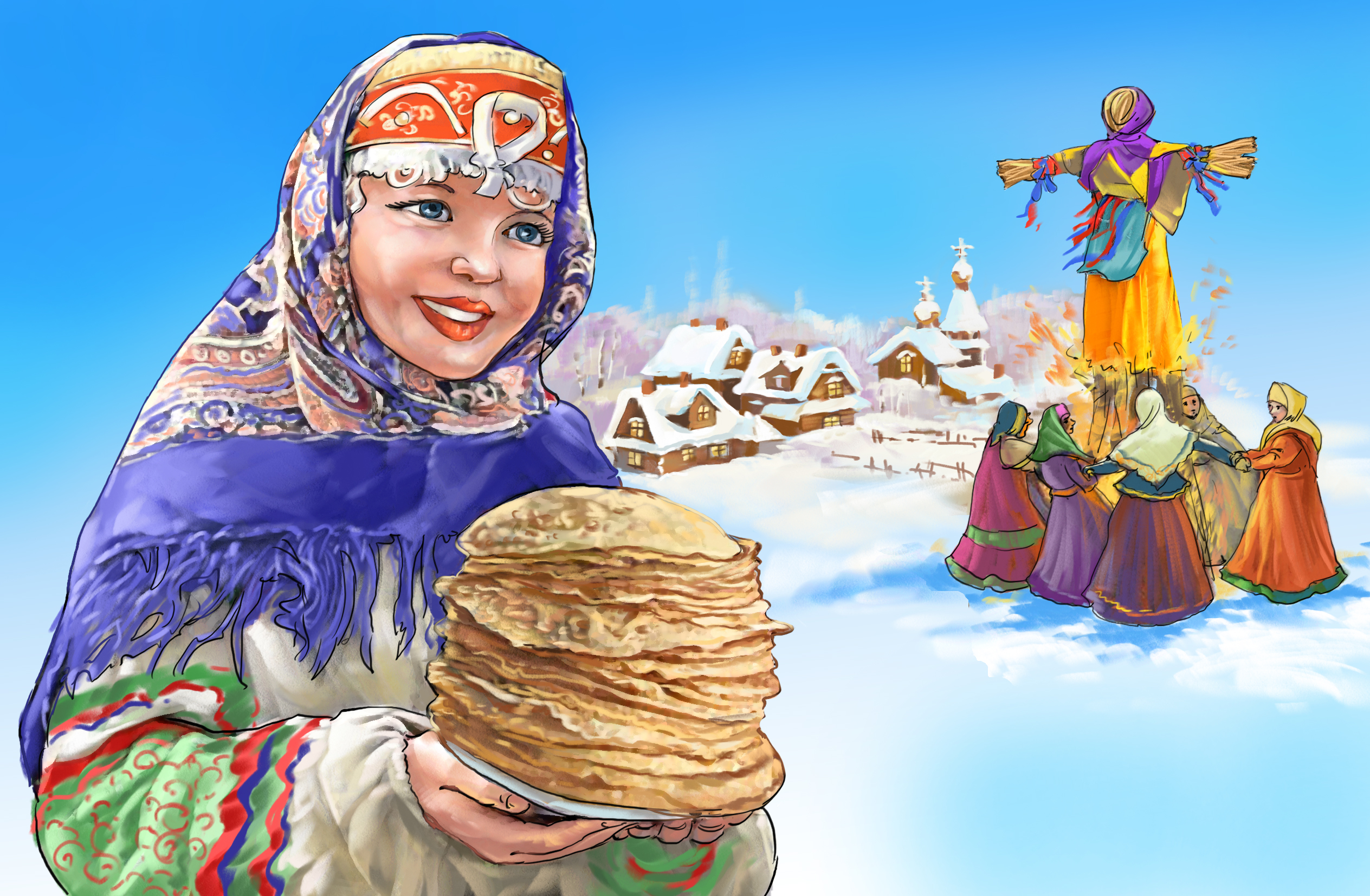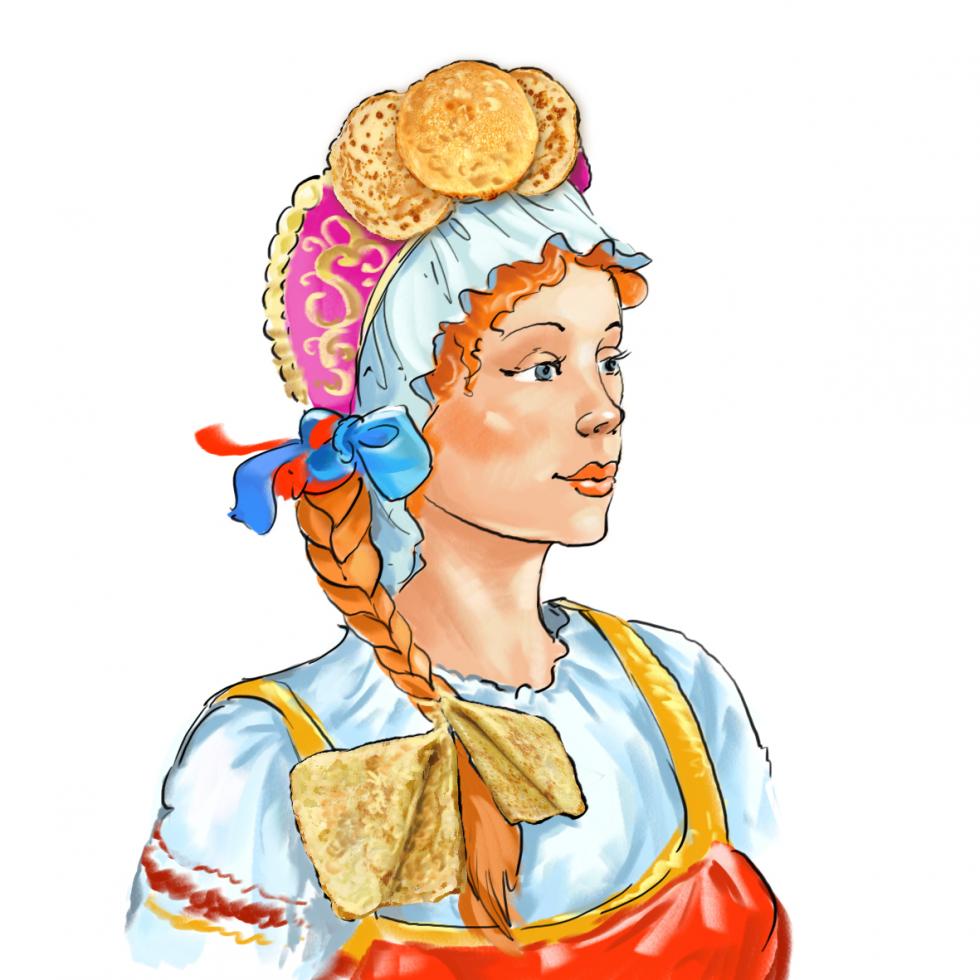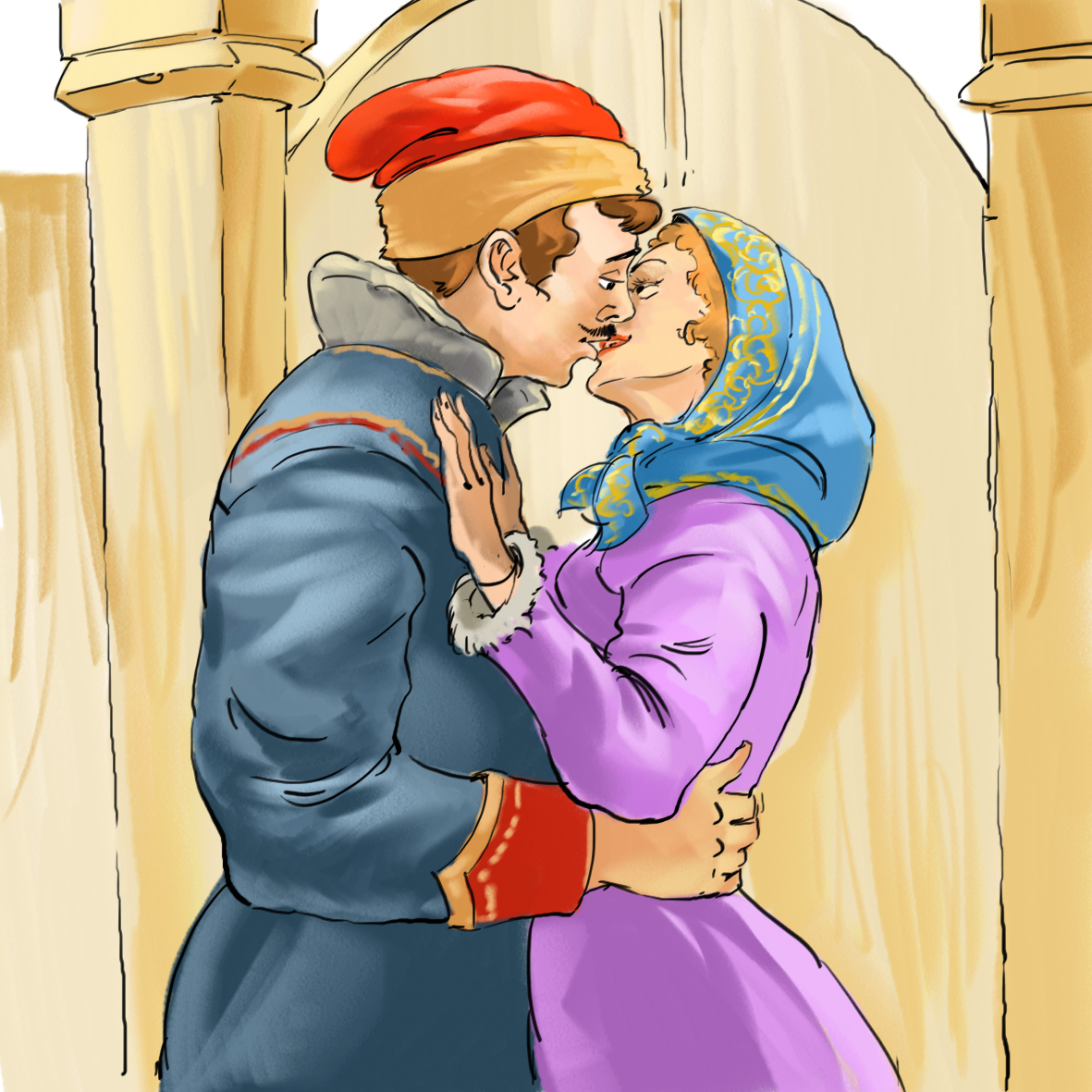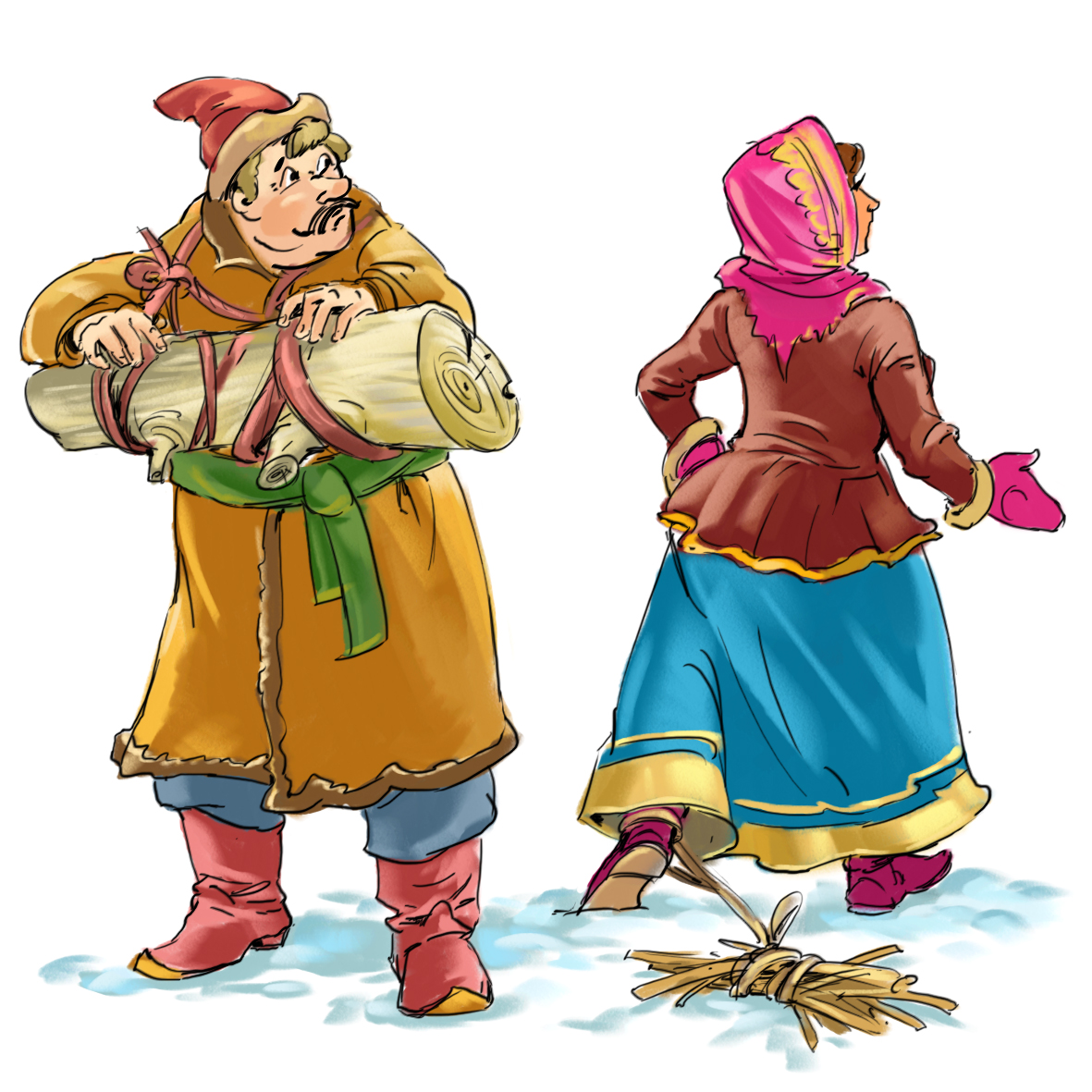5 most bizarre Russian Maslenitsa traditions

Maslenitsa is an ancient Slavic holiday originating in pagan culture, and the only such festival to have been recognized by the Russian Orthodox Church. In 2017, Maslenitsa will be celebrated on Feb. 20-26. The pancake, or bliny, is its main symbol. We asked singer and Russian folklore collector, Vladimir Devyatov, who is also director of the Russian Culture and Arts Center, to tell us about some of the more bizarre traditions associated with Maslenitsa.
Nude bathing
 Source: Dmitry Divin
Source: Dmitry Divin
In villages on the river Tavda in the Sverdlovsk Region (1,200 miles east of Moscow) residents used to parody a ritual of purification from bad luck with a ‘banya,’ or bathing. They would strip naked in the street, in plain sight, and imitate movements that a person makes when taking the banya, grimacing and singing ditties. This mock striptease is still practiced in that area.
Pancake hairdos
 Source: Dmitry Divin
Source: Dmitry Divin
In Vologda Region (280 miles north of Moscow) until the mid-19th century young women decorated their hair by weaving pancakes into their plaits. They thought this would protect from evil spirits, and also attract a husband through this display of their skill. In some villages, a less radical version of this tradition was practiced whereby pancakes were used to decorate the traditional Russian female headdress, the kokoshnik.
Kissing galore
 Source: Dmitry Divin
Source: Dmitry Divin
Maslenitsa also served as a competition of sorts between newlyweds - young couples would stand outside their gates and kiss for everybody to see, or would be buried in or sprayed with snow. When young couples were riding in a sleigh through the village, they might be stopped and old shoes or straw was thrown at them. Sometimes, a kissing fest was organized, whereby any fellow villager could come into a newlyweds’ house and kiss either the husband or the wife.
Bad news for the unmarried
 Source: Dmitry Divin
Source: Dmitry Divin
Young men and women who did not get married in the preceding year were punished. They would have something heavy, such as a piece of wood, tied to their leg or hung from their neck to be carried around for a week. In order to get rid of it, they had to either pay money, or offer Maslenitsa treats to people.
Mock funeral processions
On the last day of this festive week, Forgiveness Sunday, an effigy of Maslenitsa is burnt. It is an established ritual to say farewell to winter and to welcome spring and the warmth it brings. In central Russia, the ritual was held pretty much in its current manner, but in other parts of the country it took the form of a mock funeral procession. Participants would carry an effigy through the village in a special box imitating a coffin. The procession usually consisted of a ‘priest’ (a young woman in a robe with a stick-on beard made of hemp or wool), a ‘deacon’ with a ‘sexton,’ and a group of mourners bringing up the rear.
Read more: 3 unusual pancake recipes
If using any of Russia Beyond's content, partly or in full, always provide an active hyperlink to the original material.
Subscribe
to our newsletter!
Get the week's best stories straight to your inbox